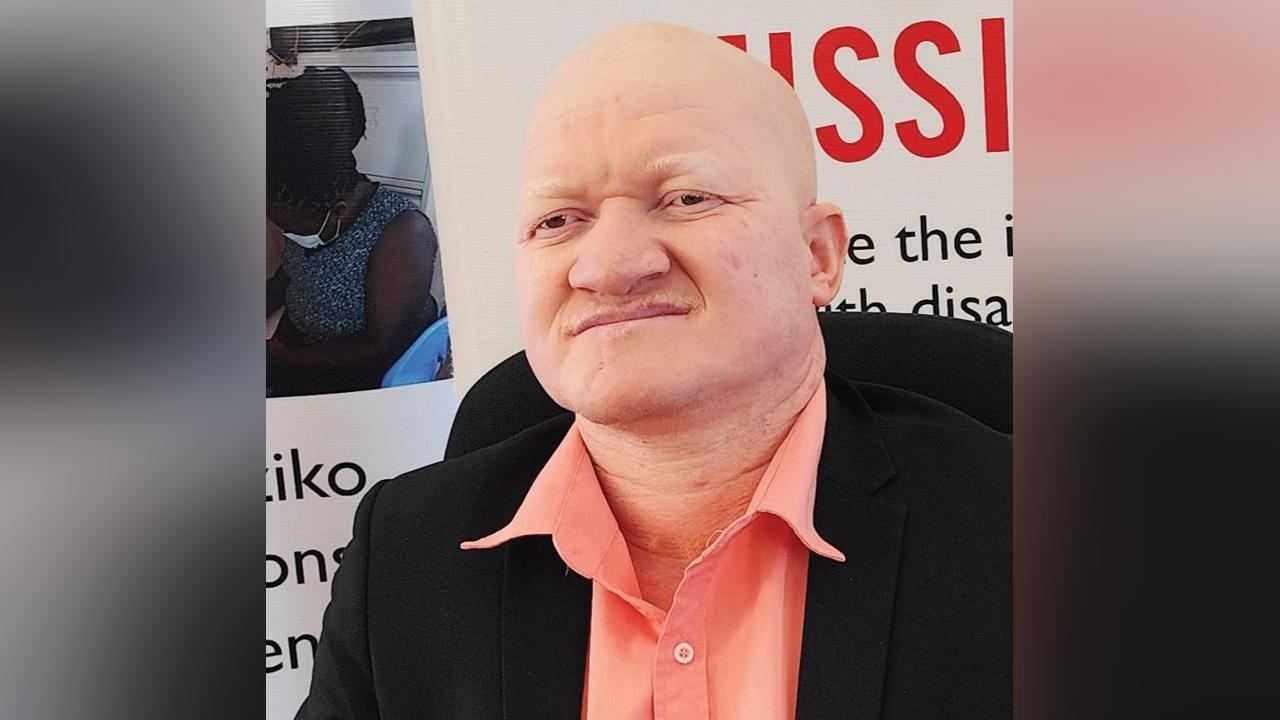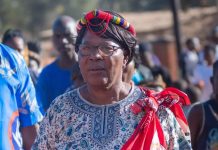Africa-Press – Malawi. On June 17, Malawi will be joining the rest of the world in commemorating the 11th International Albinism Awareness Day.
The Association of Persons with Albinism in Malawi (Apam) has issued a call for enhanced protection of persons with albinism, particularly during this election period.
Speaking at a press briefing in Lilongwe Friday, Apam president Young Muhamba highlighted the spike in human rights violations against persons with albinism during these times, urging all stakeholders to commit to their safety and inclusion.
Globally, the day will be observed under the theme ‘Demanding our rights: Protect our skin, preserve our lives.’
For Malawi, the theme is “United for peace and inclusion: Strengthening the protection of persons with albinism during all times, including elections.”
This theme, according to Muhamba, directly confronts Malawi’s stark reality when persons of albinism suffer different abuses during elections in life even in death.
“Since 2014, Apam has documented 223 cases of human rights violations against persons with albinism,” Muhamba said.
“What is deeply disturbing is that 62 percent of these cases occurred during election periods — moments that should be celebrations of democracy, not times of fear and violence for vulnerable groups like ours,” he said.
Muhamba underscored that these are not mere statistics, but devastating human experiences.
“This year alone, we have already registered five cases, two of which were attempted abductions of children under the age of five, in Mulanje and Mwanza districts. Let that sink in: toddlers – babies – targeted simply because they were born with albinism,” he said.
In addition to the attempted abductions, Muhamba reported three cases of graveyard tampering in Ntcheu, Mwanza and Lilongwe.
“These acts reflect the continued grip of harmful myths and beliefs that dehumanize persons with albinism — even in death,” he said.
Jean SendezaMuhamba conveyed what he called “the profound exhaustion” felt within the community, to the Minister of Gender, children, Disability and Social Welfare Jean Sendeza who sat with the community during the press conference.
“We are tired. Tired of repeating the same message every year. Tired of seeing no justice for victims. Tired of burying our own under horrifying circumstances,” he said.
“And yet – we are not giving up,” he added.
Sendeza expressed government’s committee to protect the persons with albinism during the period and after.
“You will also agree with me that we have witnessed very good collaboration between the government and stakeholders in advocating for the human rights of persons with albinism over the years.
“On its part, government continues to be committed to finalizing the review of the National Action Plan on Persons with Albinism and come up with a successor plan. Work is underway and I have been assured that by August this year we will have the new plan in place,” Sendeza said.
She said the government continues funding the National Action Plan through the national budget to ensure sustained implementation of various interventions aimed at safeguarding the rights and wellbeing of persons with albinism.
“We continue constructing decent and secure houses for persons with albinism across the country for their security and dignity,” Sendeza said.
Government admits in the National Action Plan that despite having been a part of the society from time immemorial, most persons with albinism still face prejudice and stigmatisation, as well as multiple and intersectional forms of discrimination on the basis of their skin colour.
“This prevents them from exercising their economic and social rights, forcing them into isolation. Their living conditions continue to be characterized by limited access to basic social services thereby disproportionally being affected by poverty,” it says.
It acknowledged that myths and misconceptions about the albinism condition and persons with albinism are profound due to limited knowledge about them among the public.
It commits to civic education, awareness raising and training; administration of justice and support of victims of attack as well as safety and security of persons with albinism, among other areas.
For More News And Analysis About Malawi Follow Africa-Press






